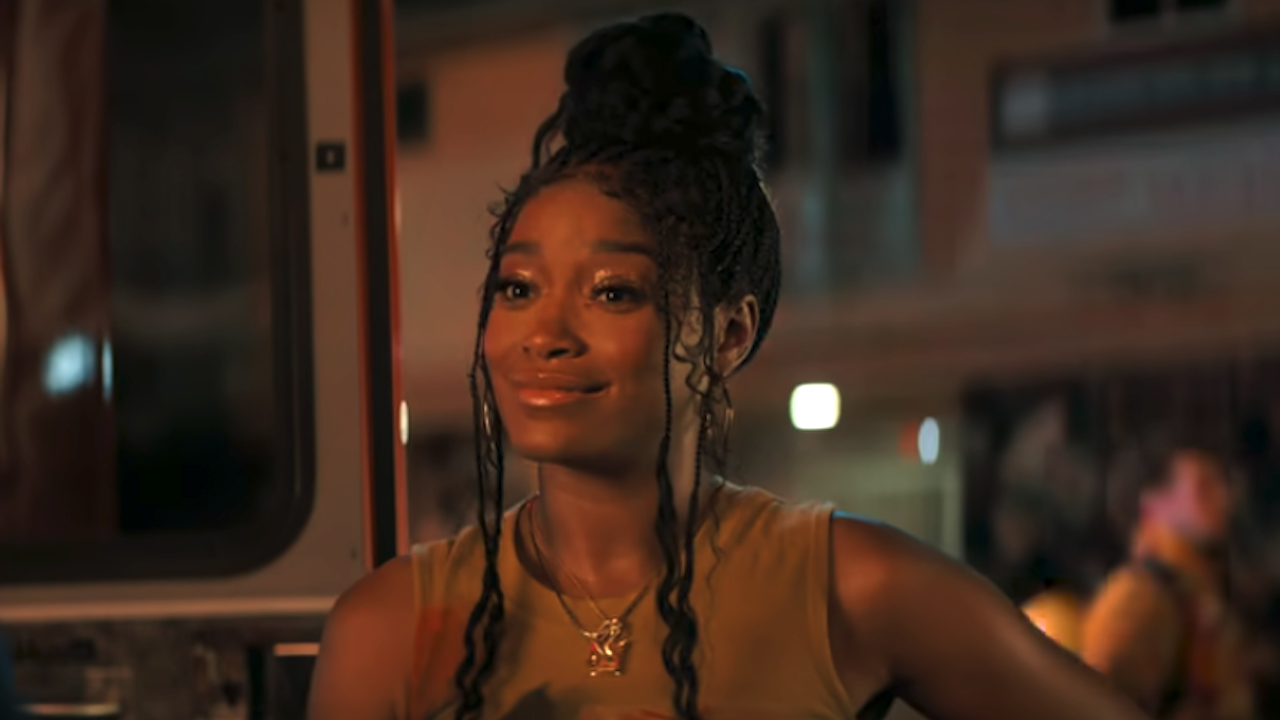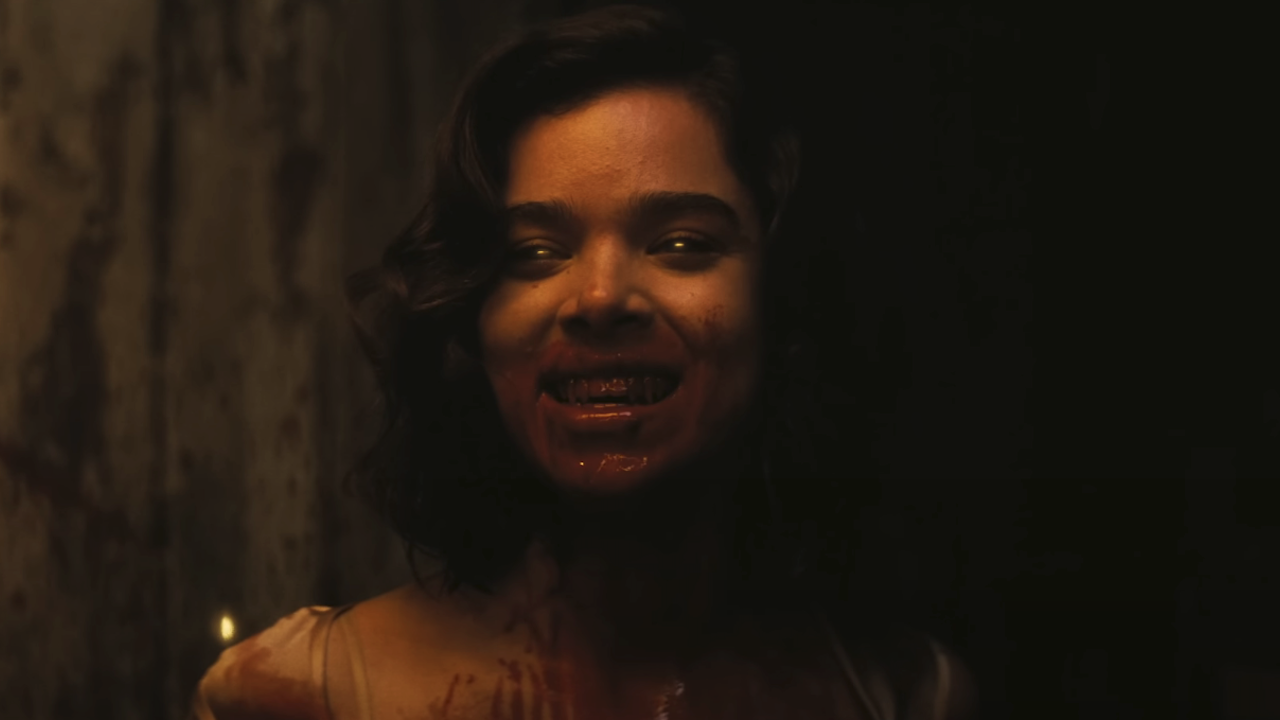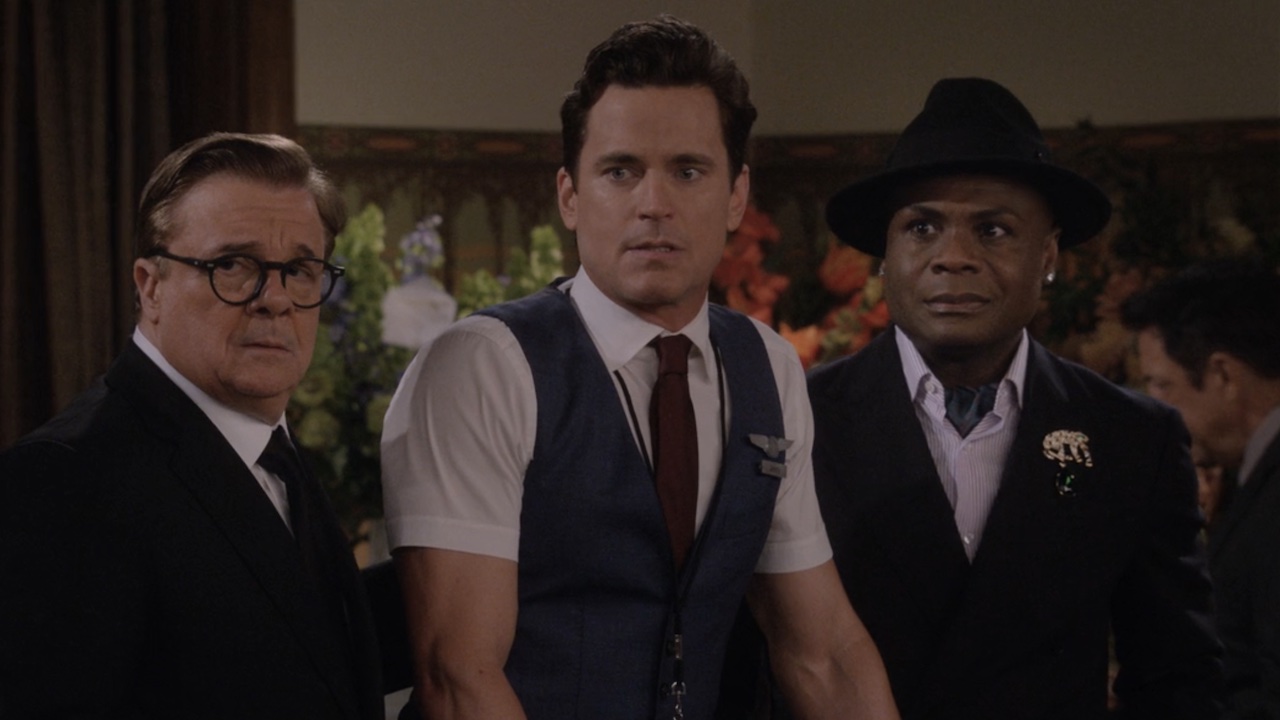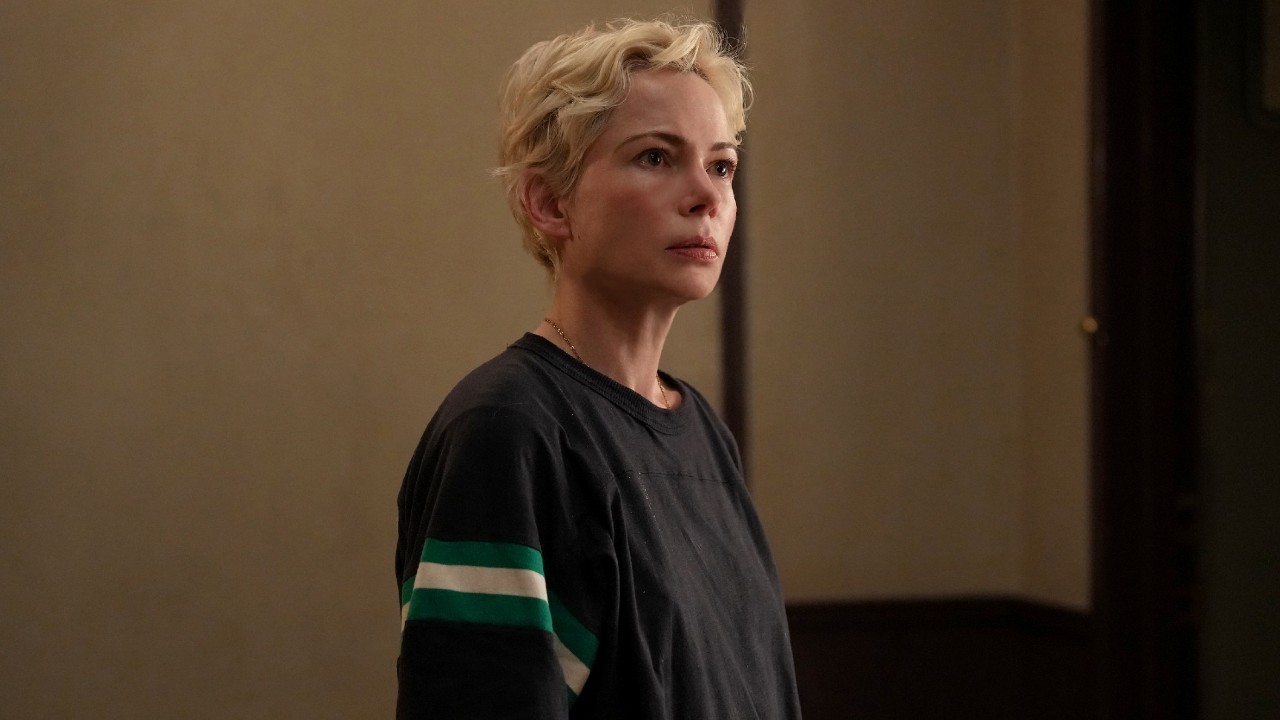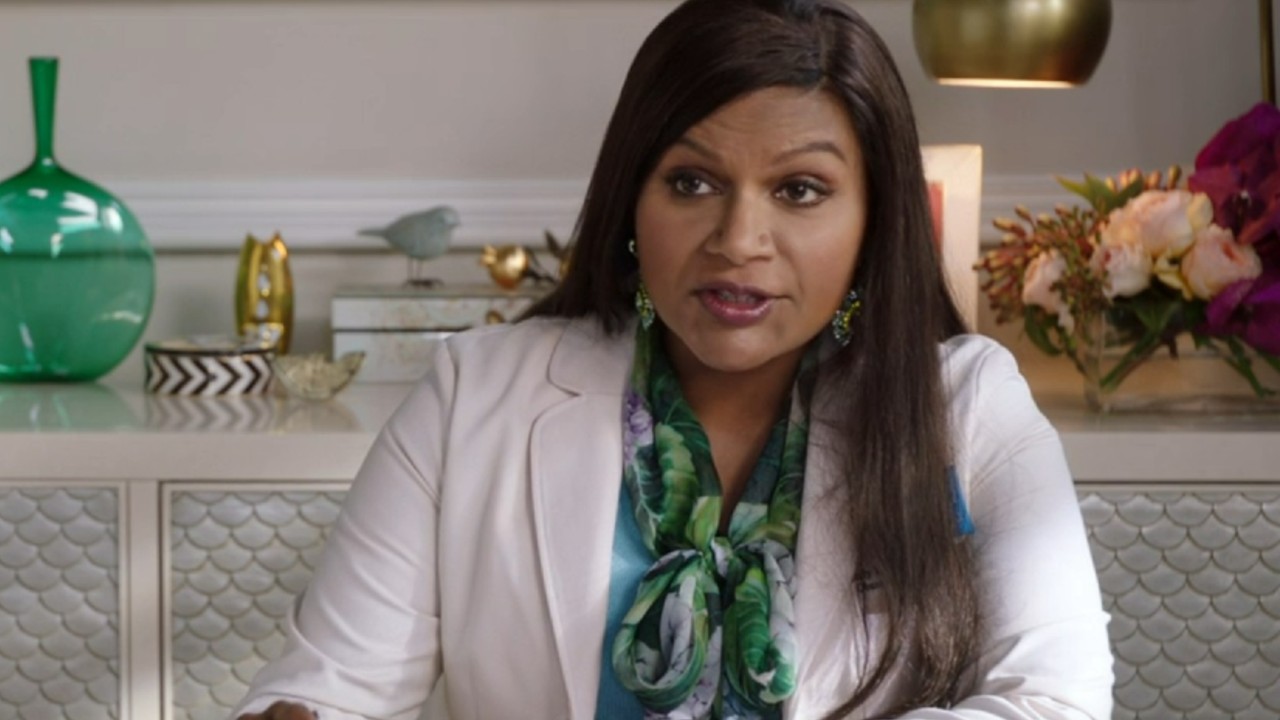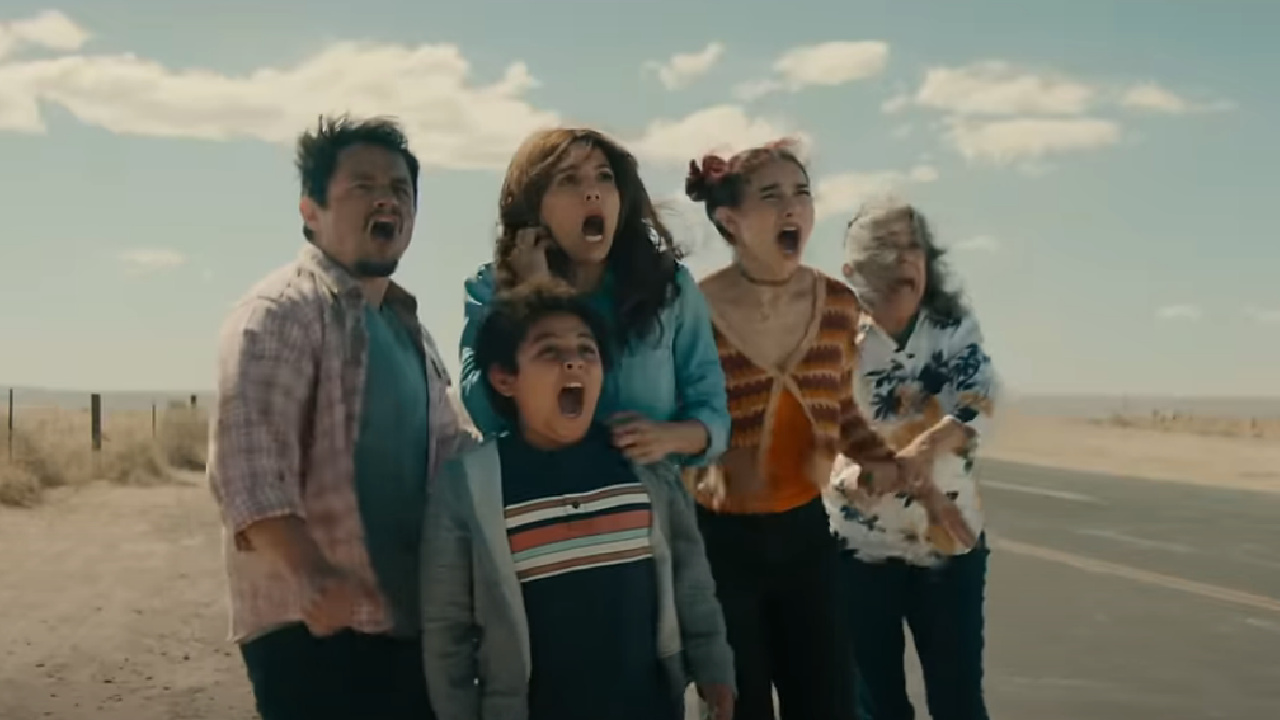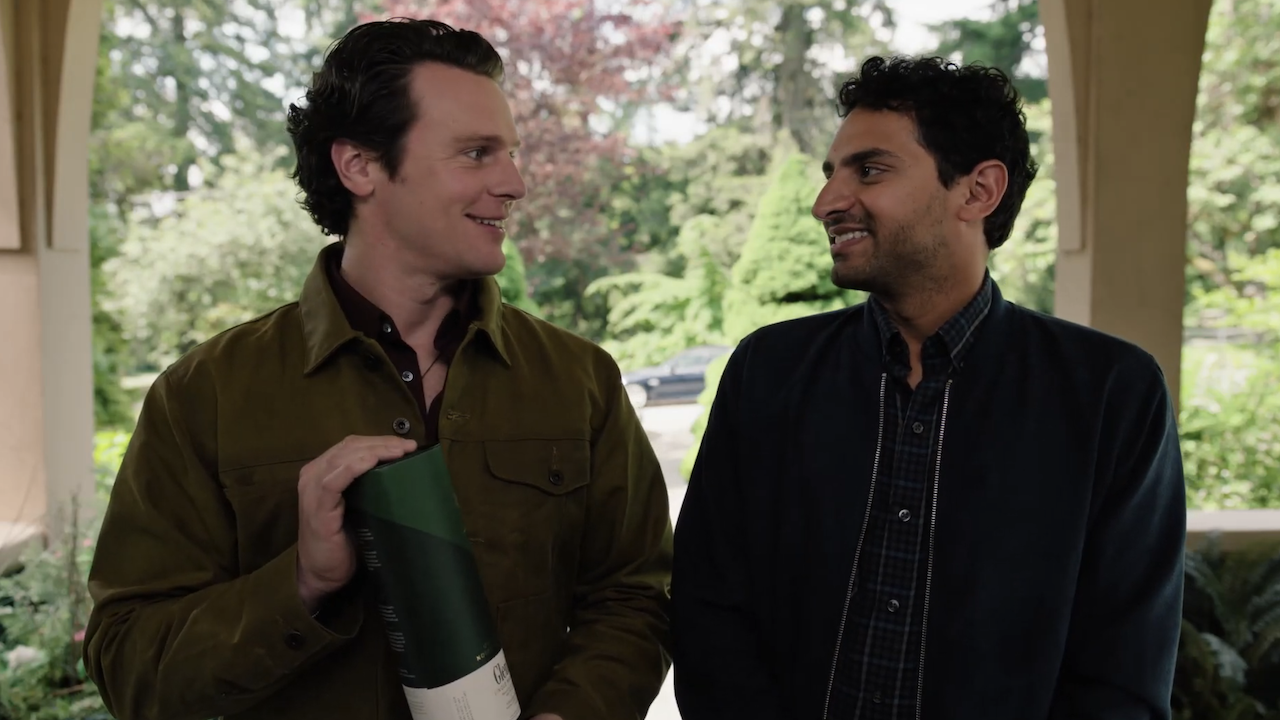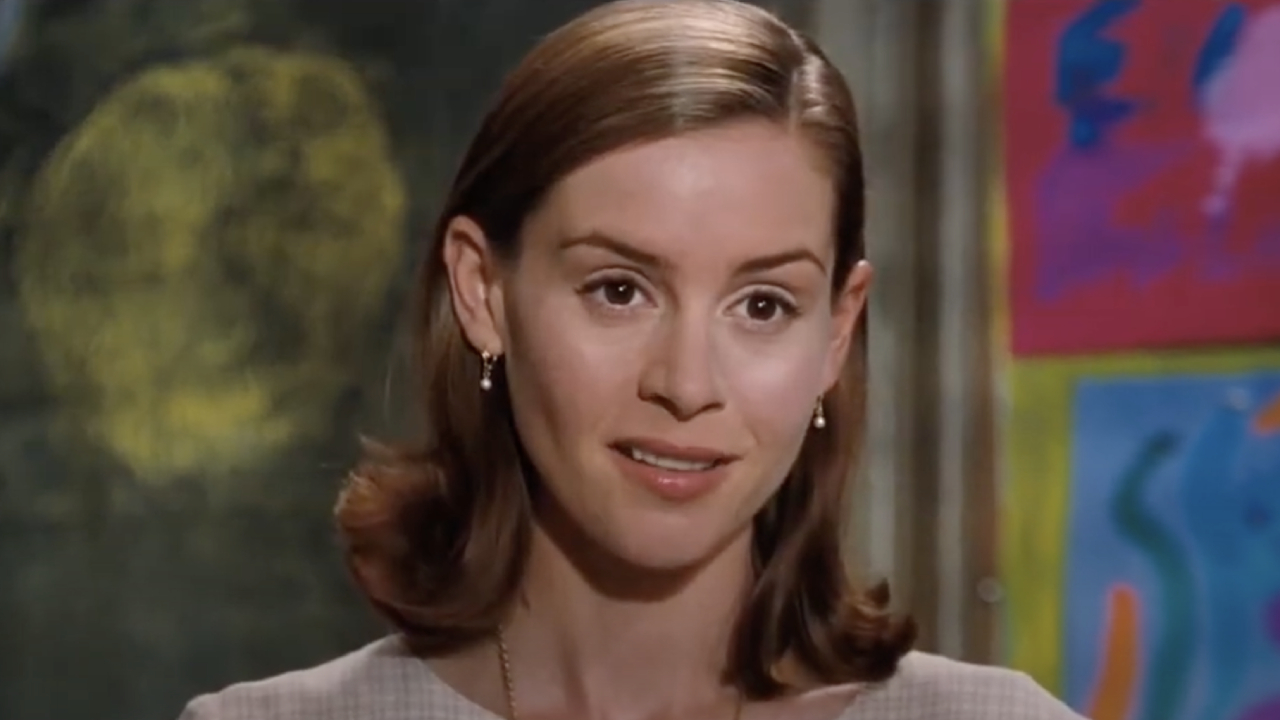I'm Still Thinking About We Live In Time, Specifically How It Depicts Dignity In The Face Of Illness
Great, now I'm crying again...
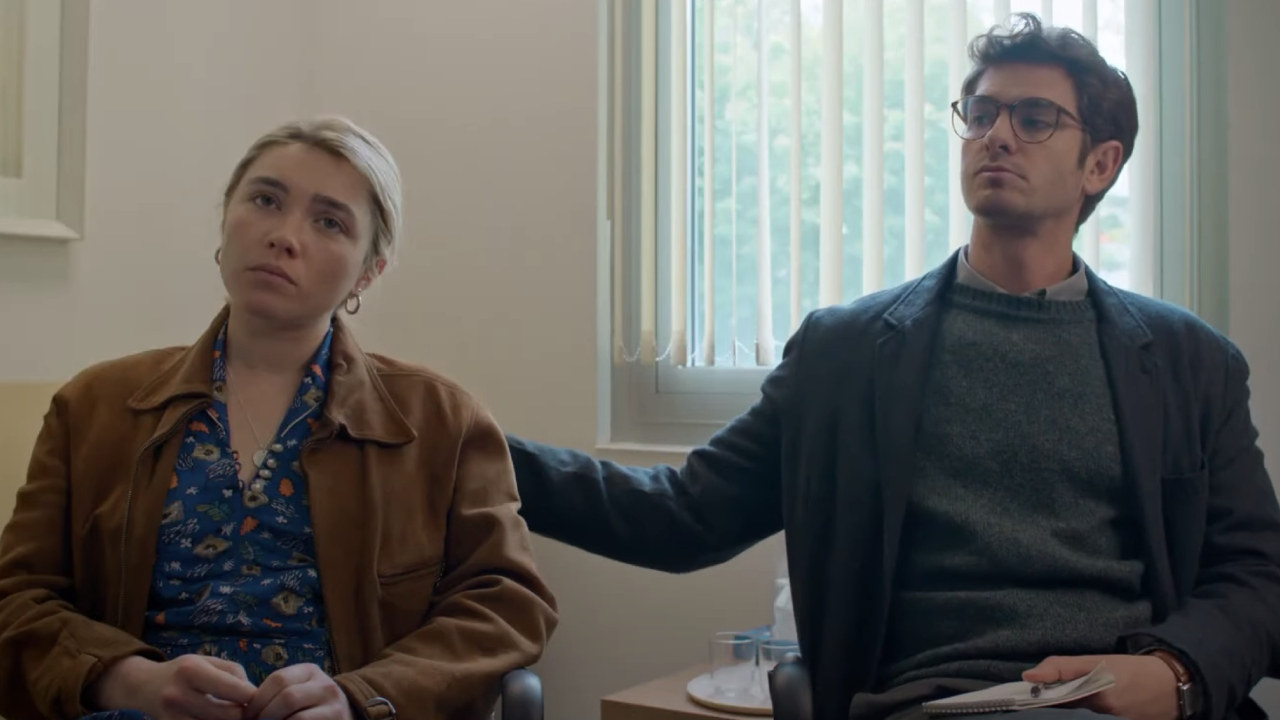
Spoiler Warning: The following article contains major spoilers for the We Live in Time ending. If you’ve yet to watch the movie, please exercise extreme caution.
Like a lot of my colleagues, I thought We Live in Time was one of the best movies of 2024, and definitely one that had me crying multiple times before everything was said and done. The movie starring Florence Pugh and Andrew Garfield as two partners who encounter tremendous highs and heartbreaking lows throughout their relationship is now streaming for anyone with a Max subscription, but I’ve been thinking about it quite a bit since I saw it a few months ago.
I mean, there’s so much to love about the incredibly emotional romantic drama, including its unique narrative structure, the chemistry between the two leads, and John Crowley’s direction. But the thing I love most about this movie, the aspect that has resonated with me the most, is how it depicts dignity and bravery in the face of illness and death. Allow me to explain…
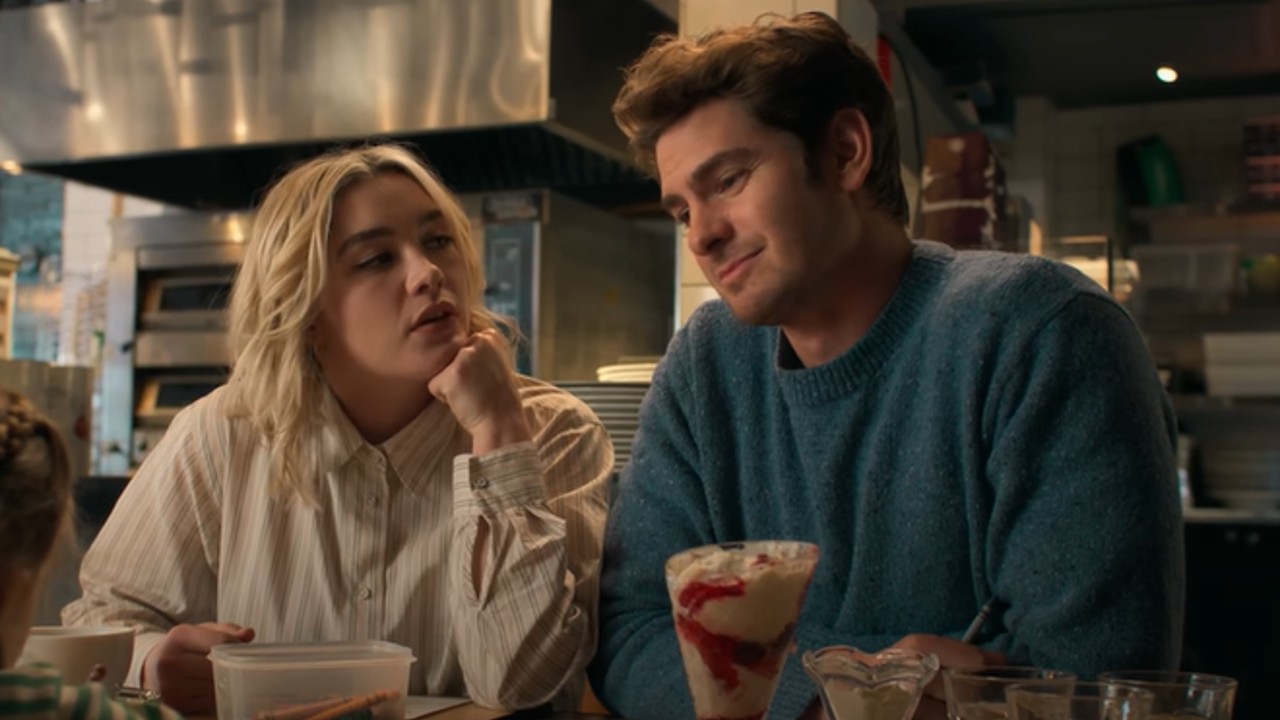
We Live In Time Was One Of The Most Emotional Movies I Watched Last Year
When it comes to movies impossible to watch without crying, We Live in Time is up there on the list. Seriously, this great A24 movie was one of the most emotional cinematic experiences I had all year. Though the film is sometimes billed as a romantic comedy, it’s very much a drama that filled my heart with emotion and then ripped it out of my chest, leaving me feeling numb, broken, and hollow by the time the credits rolled.
The trials and tribulations faced by Pugh’s Almut and Garfield’s Tobias, even before the former’s cancer diagnosis enters the picture are both beautiful and heartbreaking and perfectly capture the strange feeling after the initial honeymoon phase of a relationship wears off. But then when Almut’s illness takes over the story, I found myself tearing up multiple times, especially when she’s talking about her young daughter living in a world with a mom. Gutting. Absolutely gutting.
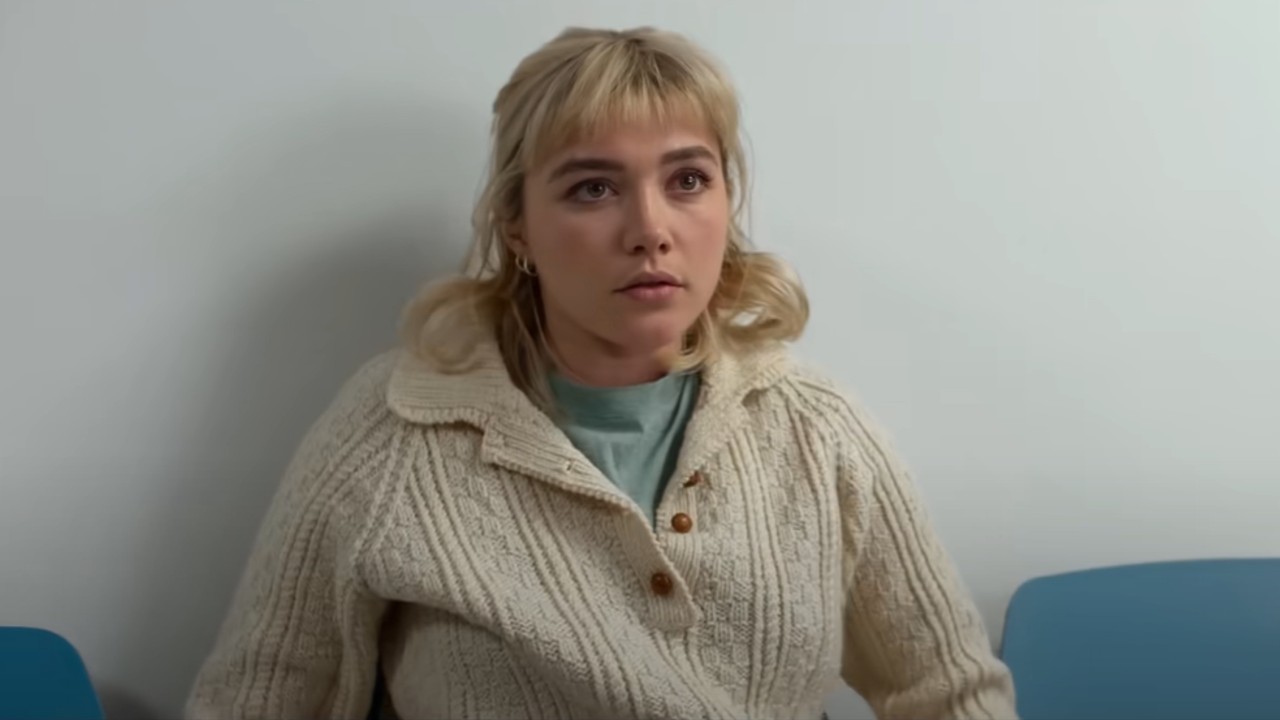
The Way The Movie Handles Illness And How It Impacts Relationships Is So Raw And Powerful
There have been a lot of movies over the years that handle illness and death in a meaningful way. You have classics like Terms of Endearment and Philadelphia and more modern gems like 50/50 and Me and Earl and the Dying Girl, and I honestly think We Live in Time is right up there with them. This is especially true when it comes to how Almut’s cancer diagnosis impacts her relationship with Tobias.
It’s just so raw and powerful watching Almut try to balance her life, relationship with Tobias, and raising their daughter while staring death square in the eyes. I’ve grown so used to movies that sugarcoat terminal illness and death while also providing some sense of optimism that things will be okay. But not here. As soon as I learned of Almut’s diagnosis, I knew where this story was headed. What I didn’t know though, was just how real and unflinching it would be.
I’m not going to lie, it was honestly refreshing to have something like this in a movie. I know we watch movies as a form of escapism, but having stories that feel like they’re pulled from real life is a great learning experience and a way to cope with it all.
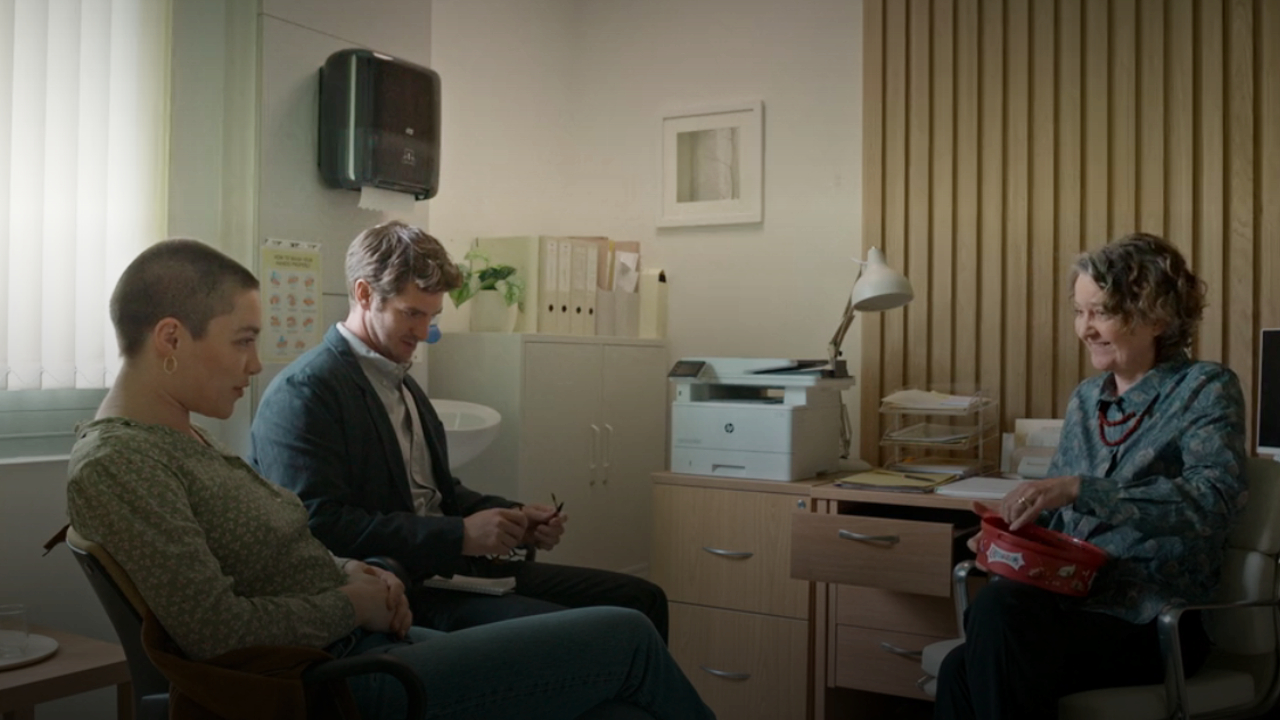
The Scene Where The Doctor Tells Almut 'It's Okay Not To Be Okay' Was Heartbreaking Yet So Reassuring
There’s a scene near the end (though it actually takes place earlier in the narrative on account of the whole non-linear structure of the film) where Almut and Tobias learn that the chemotherapy treatments are not working and the cancer has actually spread throughout her body, and it’s just such an emotional moment. After Almut responds to the news with “I’m okay,” the doctor pauses and tells her “It’s okay not to be okay,” and that’s when I really started crying.
It was such a heartbreaking moment filled with both honesty and kindness from the doctor, who wants nothing more than to cure Almut of her illness but is also painfully aware of the gravity of the situation. But it also becomes this incredibly reassuring and comforting scene moments later when the same doctor notices that Almut is hungry and offers her a piece of candy from her desk. Together, the three, digesting the news, sit in silence and eat chocolate.
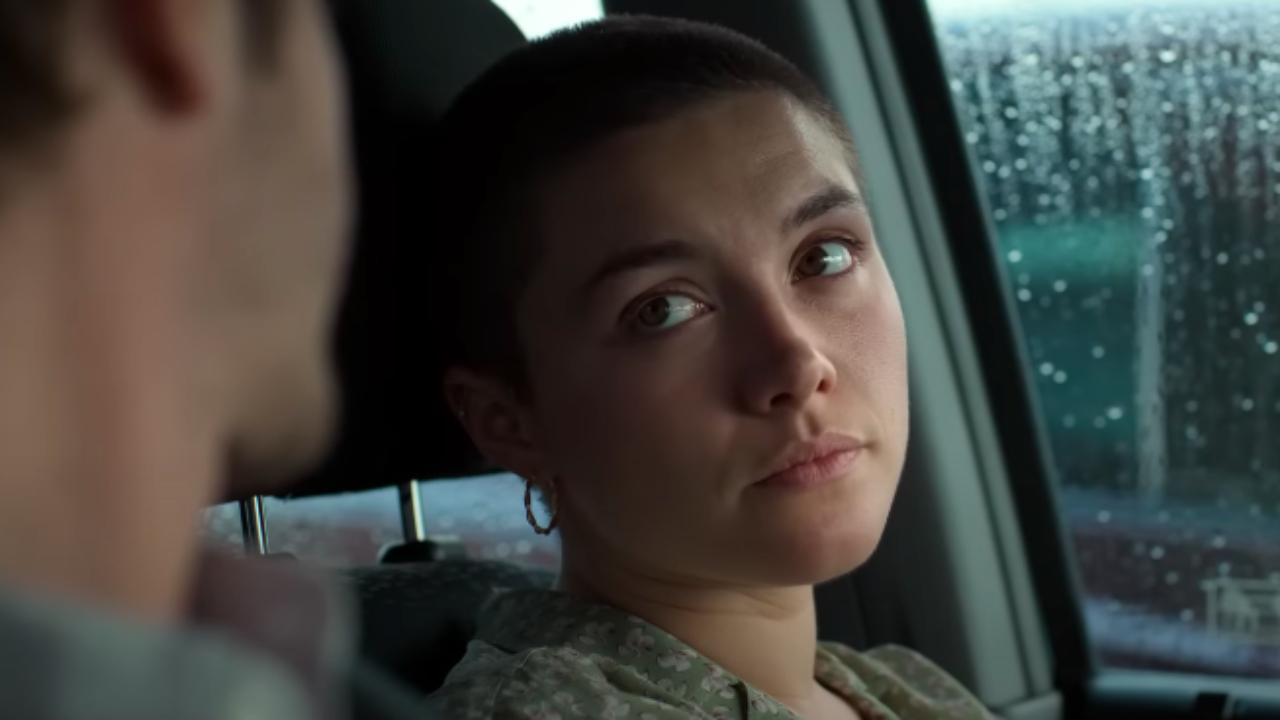
But I Can't Stop Thinking About Almut's Decision To Live The Rest Of Her Life With Dignity Instead Of In A Hospital Bed
Just like Florence Pugh’s decision to shave her head instead of wearing a bald cap for We Live in Time being a profound decision, her character’s decision to live out the rest of her life on her own terms resonated with me a whole lot. Basically, Almut decides to enter a culinary competition and follow her passion so that her young daughter could see her as a hero and someone who didn’t give up instead of someone whose last days were spent wasting away in a hospital bed.
After watching the movie, I kept thinking about what I would do if I were in her situation. Would giving my kids something to remember me by be better than having their last memories of me being someone confined to a bed hoping some radical treatment plan would save me in the eleventh hour? I honestly don’t know the answer, but I am glad that We Live in Time posed this question and really made me think about illness and how I’d want to spend my final months, weeks, days, hours, and minutes before I crossed over.

The Way The Movie Handles Grief (Both Before And After Almut's Death) Is So Moving
When I first heard about We Live in Time, I thought it was going to be your standard romantic dramedy filled with steamy scenes and laughs. And while there is a big sex scene, the movie is more of a story of love, loss, and grief than anything else. The way in which the movie handles grief is so moving, and strong, and honest, and relatable. I could feel Tobias’ pain and see his strength in that final scene with his daughter after Almut’s passing, and I was moved.
Similar to how earlier parts of the movie didn’t shy away from illness and tough decisions we have to make in the face of certain death, the We Live in Time ending doesn’t treat grief as a necessarily bad thing but instead something we will all face one day, and hopefully with as much grace, courage, and resilience as Tobias and his daughter.
CINEMABLEND NEWSLETTER
Your Daily Blend of Entertainment News

Philip grew up in Louisiana (not New Orleans) before moving to St. Louis after graduating from Louisiana State University-Shreveport. When he's not writing about movies or television, Philip can be found being chased by his three kids, telling his dogs to stop barking at the mailman, or chatting about professional wrestling to his wife. Writing gigs with school newspapers, multiple daily newspapers, and other varied job experiences led him to this point where he actually gets to write about movies, shows, wrestling, and documentaries (which is a huge win in his eyes). If the stars properly align, he will talk about For Love Of The Game being the best baseball movie of all time.
You must confirm your public display name before commenting
Please logout and then login again, you will then be prompted to enter your display name.
